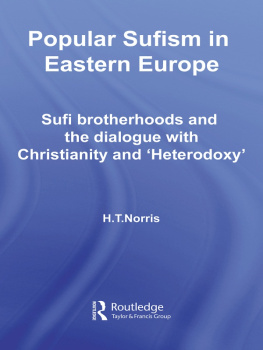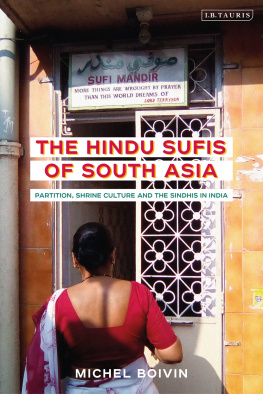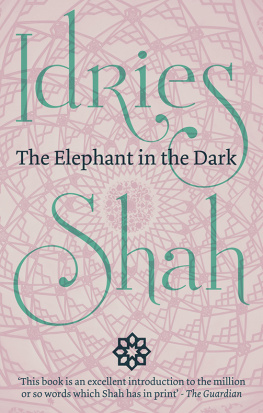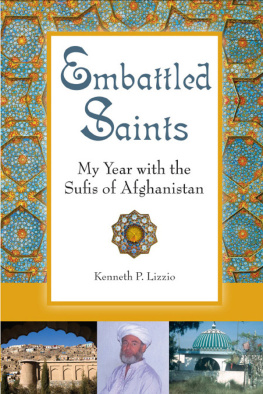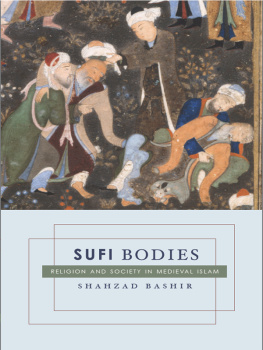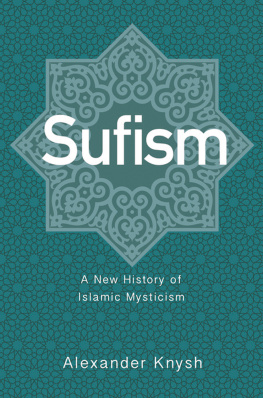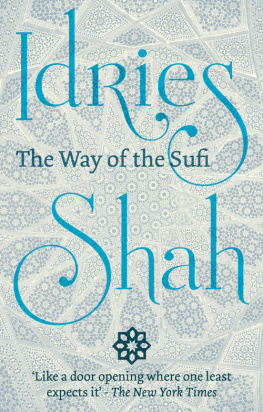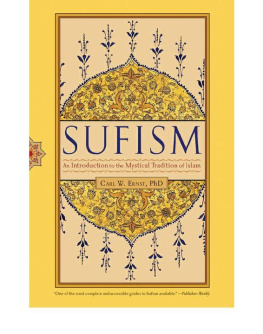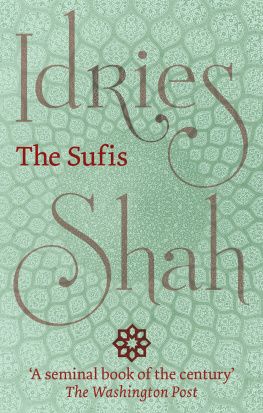Sufi Political Thought
Sufism is generally perceived as being spiritually focused and about the development of the self. However, Sufi orders have been involved historically as important civic and political actors in the Muslim world, having participated extensively in inter-faith dialogue and political challenges to religious orthodoxy. This book presents a comprehensive overview of the Sufi political tradition, both historically and in its present form. It outlines how Sufi thought has developed, examines how Sufism has been presented both by scholars and by Sufis themselves, and considers Sufis active political roles. It argues that Sufis frequently well educated, well travelled and imaginative have been well placed to engage with other faiths and absorb their ideas into Islam; but that they have also been, because they understand other faiths, well placed to understand the distinctiveness of Islam, and thereby act as the guardians of Islams core ideas and values.
Milad Milani is Lecturer in the School of Humanities and Communication Arts at the University of Western Sydney, Australia.
Routledge Religion in Contemporary Asia Series
Series Editor
Bryan S. Turner
Professor at the City University of New York and Director of the Centre for Religion and Society at the University of Western Sydney
State Management of Religion in Indonesia
Myengkyo Seo
Religious Pluralism, State and Society in Asia
Edited by Chiara Formichi
Thailands International Meditation Centers
Tourism and the Global Commodification of Religious Practices
Brooke Schedneck
Digital Culture and Religion in Asia
Sam Han and Kamaludeen Mohamed Nasir
Being Catholic in the Contemporary Philippines
Jayeel Serrano Cornelio
Catholics and Everyday Life in Macau
Changing Meanings of Religiosity, Morality and Civility
Chen Hon Fai
Sufi Political Thought
Milad Milani
First published 2018
by Routledge
2 Park Square, Milton Park, Abingdon, Oxon OX14 4RN
and by Routledge
711 Third Avenue, New York, NY 10017
Routledge is an imprint of the Taylor & Francis Group, an informa business
2018 Milad Milani
The right of Milad Milani to be identified as author of this work has been asserted by him in accordance with sections 77 and 78 of the Copyright, Designs and Patents Act 1988.
All rights reserved. No part of this book may be reprinted or reproduced or utilised in any form or by any electronic, mechanical, or other means, now known or hereafter invented, including photocopying and recording, or in any information storage or retrieval system, without permission in writing from the publishers.
Trademark notice: Product or corporate names may be trademarks or registered trademarks, and are used only for identification and explanation without intent to infringe.
British Library Cataloguing-in-Publication Data
A catalogue record for this book is available from the British Library
Library of Congress Cataloging-in-Publication Data
Names: Milani, Milad, author.
Title: Sufi political thought / Milad Milani.
Description: New York, NY : Routledge, [2017] | Includes bibliographical references and index.
Identifiers: LCCN 2017023114| ISBN 9781138787643 (hbk) | ISBN 9781315766294 (ebk)
Subjects: LCSH: Sufism--Political aspects. | Islam and politics.
Classification: LCC BP188.6 .M55 2017 | DDC 320.55/7--dc23
LC record available at https://lccn.loc.gov/2017023114
ISBN: 978-1-138-78764-3 (hbk)
ISBN: 978-1-315-76629-4 (ebk)
Typeset in Times New Roman
by Sunrise Setting Ltd, Brixham, UK
Sufism has, in the West, been treated as primarily the leading branch of Islamic mysticism and hence characterised by its a-political, esoteric, and passive character. For example, the German sociologist Max Weber, whose work continues to dominate much of the sociological study of religion, described Sufism in terms of its passionate devotion, its cultivation of ecstasy, and its joyous lyricism in his book The Sociology of Religion (1922). He thought that, because of its irrational and extraordinary character, Sufism did not produce a methodical control over the life world. In that regard, it was unlike the asceticism that was typical of the Protestant sects. While noting the missionary influence of popular Sufism in the global diffusion of Islam, Weber nowhere connects Sufism with politics or the state. Sufism spread, not as a warrior religion in Webers terms, but as a network of saints and their orders or tariqahs.
Against this background, Milad Milanis encyclopaedic study of the origins, development, and continuity of Sufism is a challenge to many taken-for-granted assumptions that persist in contemporary scholarship. Sufi Political Thought is, however, not only in confrontation with conventional sociological interpretations, but it is also a challenge to the orthodox Sunni interpretation of Sufism as a sectarian deviation from the mainstream. For Milani, there is no stationary, ideal, puritanical, or continuous Islam. Rather, Islam is an open tradition within which Sufism has been the major conduit of cultural exchange between religion and its external environment. The heterogeneity and complexity of Sufism is not a deviation from Islam but it is rather a living, dynamic, and fruitful engagement with other cultures and traditions, especially Christianity, from an Islamic standpoint. Consequently, Sufism represents the cosmopolitan, urbane, and outward-looking face of Islamic tradition(s). It has been open to the outside world throughout its existence. One major influence was, of course, from Persia, but Milani sees Sufism as essentially Islam in and through Asia. However, Sufism has drawn from many sources including, and especially, Christian mysticism and monasticism, giving a special place in its theology for Jesus as the perfect Sufi. In addition, Sufism has a tradition of martyrs who, like their Christian counter-parts, are witnesses to the working of the divine in human history.
As an intermediary between the world of Islam and the external world, Sufism has continuously mediated the religious and the political, while never allowing that dialectic to unfold into religious withdrawal or political dominance. Consequently, Sufis had to constantly negotiate a role between different states and different cultures as part of its external framework, and to negotiate a relationship with other Islamic traditions. In these diverse encounters they developed a politics of knowledge (what is authentic? What is true?) and a politics of religion (what is valid? What is authoritative?). Politics could never be avoided.
In modern times, Muslims, faced with the challenge of western secularism, have, perhaps unsurprisingly, constructed an authentic, puritan, ideal Islam that has sought to close itself off from both external cultural and religious forces. Milani thus understands the Islamic world as caught in a struggle between an exclusive and narrow puritanism promoting a selective, integrated, and idealistic view of Islamic history and an inclusive, evolving, and dynamic Islam through the medium of Sufi spirituality.


